Norwegian says his Philippine kidnapping was €˜devastating€™
Associated Press
September 18, 2016
Updated September 18, 2016 6:35am
2 / 2
PrevNext
INDANAN, Philippines » A Norwegian man freed by militants after a year of jungle captivity in the southern Philippines described the ordeal Sunday as €œdevastating,€ carrying a backpack with a bullet hole as a reminder of a near-death experience that included the beheadings of the two Canadians kidnapped with him.
Kjartan Sekkingstad was freed by his Abu Sayyaf captors on Saturday to rebels from the larger Moro National Liberation Front, which has signed a peace deal with the Philippine government and helped negotiate his release. On Sunday, he was handed over to Philippine authorities, along with three Indonesian fishermen freed separately by the Abu Sayyaf.
Aside from the horror of constantly being warned that he would be the next to be beheaded by the brutal extremists, Sekkingstad said he survived more than a dozen clashes between Philippine forces and his captors in the lush jungles of Sulu province.
In one intense battle, in which the forces fired from assault helicopters and from the ground, he said he felt a thud in his back and thought he was hit by gunfire. After the fighting eased, he discovered that he wasn€™t hit, and that his green, army-style backpack had been pierced by the gunfire instead.
Sekkingstad was carrying the damaged backpack when he walked to freedom Saturday somewhere in the thick jungle off Sulu€™s mountainous Patikul town.
On Sunday, the heavily bearded Sekkingstad, clad in a rebel camouflage uniform and muddy combat boots, was asked how he would describe his horrific experience.
€œDevastating, devastating,€ he said, still clutching the backpack.
Philippine presidential adviser Jesus Dureza, who received Sekkingstad and the three freed Indonesians from Moro National Liberation Front rebel chief Nur Misuari in Misuari€™s rural stronghold near Sulu€™s Indanan town, accompanied the Norwegian on a flight to southern Davao city, where the ex-hostage met President Rodrigo Duterte.
Duterte told Sekkingstad that his travails were over. Sekkingstad, newly shaved but looking gaunt in a loose polo shirt, thanked all those who worked for his freedom.
€œI am very happy to be alive and free,€ he said. €œIt€™s a beautiful feeling.€
Sekkingstad was kidnapped from a yacht club he helped managed on southern Samal Island on Sept. 21, 2015, along with Canadians John Ridsdel and Robert Hall and Hall€™s Filipino girlfriend, Marites Flor, sparking a massive land and sea search by Philippine forces.
The Abu Sayyaf demanded a huge ransom for the release of the foreigners, and released videos in which they threatened the captives in a jungle clearing where they displayed Islamic State group-style black flags.
Ridsdel was beheaded in April and Hall was decapitated in June after ransom deadlines lapsed. When Flor was freed in June, she recounted in horror how the militants rejoiced while watching the beheadings.
Sekkingstad said he and his fellow captives were forced to carry the militants€™ belongings and were kept in the dark on what was happening around them. At one point, he said, their heavily armed captors numbered more than 300.
€œWe were treated like slaves,€ he said.
After the militants decapitated Ridsdel, Sekkingstad was threatened by the militants, who repeatedly told him, €œYou€™re next.€
When the negotiations for his release began in recent months, Sekkingstad said the rebels began treating him better.
It was not immediately clear whether Sekkingstad had been ransomed off. Duterte suggested at a news conference last month that 50 million pesos ($1 million) had been paid to the militants, but that they continued to hold on to him. The military said Saturday that relentless assaults forced the extremists to release the hostage.
In Norway, Prime Minister Erna Solberg thanked Duterte and Dureza, and said his government supports the Philippines €œin their fight against terrorism.€ Solberg told Norway€™s NTB national news agency that €œNorwegian officials had not participated in any payment of ransom or made any concessions in the matter.€
Philippine forces launched a major offensive against the Abu Sayyaf after the beheadings of the Canadians sparked condemnations from then-Philippine President Benigno Aquino III and Canadian Prime Minister Justin Trudeau, who called on other nations not to pay ransoms if their citizens are abducted to discourage the militants from carrying out more kidnappings.
The three Indonesian fishermen freed by the Abu Sayyaf were kidnapped in July off Lahad Datu district in Malaysia€™s Sabah state, according to regional Philippine military spokesman Maj. Filemon Tan. Their release came as Indonesian Defense Minister Ryamizard Ryacudu was visiting the Philippines.
Five Indonesians, five Malaysians and a Dutch bird watcher, along with five Filipinos, remain in Abu Sayyaf custody, the Philippine military said.
The Abu Sayyaf has been blacklisted as a terrorist organization by the U.S. and the Philippines for deadly bombings, kidnappings and beheadings. Without any known foreign funding, the extremists have relied on ransom kidnappings, extortion and other acts of banditry, and some commanders have pledged loyalty to the Islamic State group partly in the hope of obtaining funds.
Associated Press writers Jim Gomez in Manila, Philippines, Matti Huuhtanen in Helsinki and Ali Kotarumalos in Jakarta, Indonesia, contributed to this report.
Associated Press
September 18, 2016
Updated September 18, 2016 6:35am

ASSOCIATED PRESS
Released Norwegian hostage Kjartan Sekkingstad, right, briefly delivered his statement after meeting Philippine President Rodrigo Duterte in Davao city in southern Philippines on Sunday.
ASSOCIATED PRESS
Released Norwegian hostage Kjartan Sekkingstad carried a backpack as he boarded a plane to take him to Davao city for an audience with Philippine President Rodrigo Duterte, Sunday, on Jolo island, Sulu province in southern Philippines.
2 / 2
PrevNext
INDANAN, Philippines » A Norwegian man freed by militants after a year of jungle captivity in the southern Philippines described the ordeal Sunday as €œdevastating,€ carrying a backpack with a bullet hole as a reminder of a near-death experience that included the beheadings of the two Canadians kidnapped with him.
Kjartan Sekkingstad was freed by his Abu Sayyaf captors on Saturday to rebels from the larger Moro National Liberation Front, which has signed a peace deal with the Philippine government and helped negotiate his release. On Sunday, he was handed over to Philippine authorities, along with three Indonesian fishermen freed separately by the Abu Sayyaf.
Aside from the horror of constantly being warned that he would be the next to be beheaded by the brutal extremists, Sekkingstad said he survived more than a dozen clashes between Philippine forces and his captors in the lush jungles of Sulu province.
In one intense battle, in which the forces fired from assault helicopters and from the ground, he said he felt a thud in his back and thought he was hit by gunfire. After the fighting eased, he discovered that he wasn€™t hit, and that his green, army-style backpack had been pierced by the gunfire instead.
Sekkingstad was carrying the damaged backpack when he walked to freedom Saturday somewhere in the thick jungle off Sulu€™s mountainous Patikul town.
On Sunday, the heavily bearded Sekkingstad, clad in a rebel camouflage uniform and muddy combat boots, was asked how he would describe his horrific experience.
€œDevastating, devastating,€ he said, still clutching the backpack.
Philippine presidential adviser Jesus Dureza, who received Sekkingstad and the three freed Indonesians from Moro National Liberation Front rebel chief Nur Misuari in Misuari€™s rural stronghold near Sulu€™s Indanan town, accompanied the Norwegian on a flight to southern Davao city, where the ex-hostage met President Rodrigo Duterte.
Duterte told Sekkingstad that his travails were over. Sekkingstad, newly shaved but looking gaunt in a loose polo shirt, thanked all those who worked for his freedom.
€œI am very happy to be alive and free,€ he said. €œIt€™s a beautiful feeling.€
Sekkingstad was kidnapped from a yacht club he helped managed on southern Samal Island on Sept. 21, 2015, along with Canadians John Ridsdel and Robert Hall and Hall€™s Filipino girlfriend, Marites Flor, sparking a massive land and sea search by Philippine forces.
The Abu Sayyaf demanded a huge ransom for the release of the foreigners, and released videos in which they threatened the captives in a jungle clearing where they displayed Islamic State group-style black flags.
Ridsdel was beheaded in April and Hall was decapitated in June after ransom deadlines lapsed. When Flor was freed in June, she recounted in horror how the militants rejoiced while watching the beheadings.
Sekkingstad said he and his fellow captives were forced to carry the militants€™ belongings and were kept in the dark on what was happening around them. At one point, he said, their heavily armed captors numbered more than 300.
€œWe were treated like slaves,€ he said.
After the militants decapitated Ridsdel, Sekkingstad was threatened by the militants, who repeatedly told him, €œYou€™re next.€
When the negotiations for his release began in recent months, Sekkingstad said the rebels began treating him better.
It was not immediately clear whether Sekkingstad had been ransomed off. Duterte suggested at a news conference last month that 50 million pesos ($1 million) had been paid to the militants, but that they continued to hold on to him. The military said Saturday that relentless assaults forced the extremists to release the hostage.
In Norway, Prime Minister Erna Solberg thanked Duterte and Dureza, and said his government supports the Philippines €œin their fight against terrorism.€ Solberg told Norway€™s NTB national news agency that €œNorwegian officials had not participated in any payment of ransom or made any concessions in the matter.€
Philippine forces launched a major offensive against the Abu Sayyaf after the beheadings of the Canadians sparked condemnations from then-Philippine President Benigno Aquino III and Canadian Prime Minister Justin Trudeau, who called on other nations not to pay ransoms if their citizens are abducted to discourage the militants from carrying out more kidnappings.
The three Indonesian fishermen freed by the Abu Sayyaf were kidnapped in July off Lahad Datu district in Malaysia€™s Sabah state, according to regional Philippine military spokesman Maj. Filemon Tan. Their release came as Indonesian Defense Minister Ryamizard Ryacudu was visiting the Philippines.
Five Indonesians, five Malaysians and a Dutch bird watcher, along with five Filipinos, remain in Abu Sayyaf custody, the Philippine military said.
The Abu Sayyaf has been blacklisted as a terrorist organization by the U.S. and the Philippines for deadly bombings, kidnappings and beheadings. Without any known foreign funding, the extremists have relied on ransom kidnappings, extortion and other acts of banditry, and some commanders have pledged loyalty to the Islamic State group partly in the hope of obtaining funds.
Associated Press writers Jim Gomez in Manila, Philippines, Matti Huuhtanen in Helsinki and Ali Kotarumalos in Jakarta, Indonesia, contributed to this report.


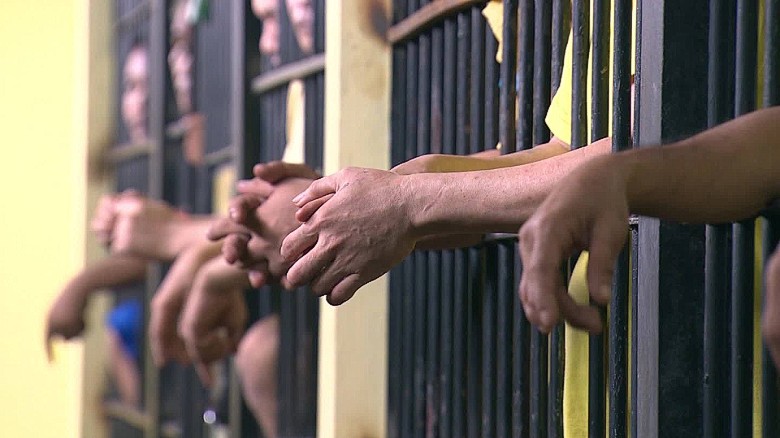
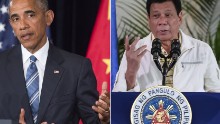 Philippine President Duterte regrets rant on Obama
Philippine President Duterte regrets rant on Obama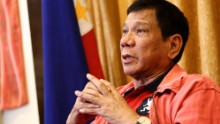 Philippines drug war sparks outrage and fear
Philippines drug war sparks outrage and fear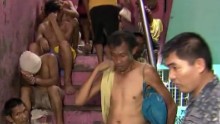 CNN goes inside Philippines' overcrowded jails
CNN goes inside Philippines' overcrowded jails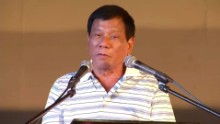 Philippines cracks down on drugs
Philippines cracks down on drugs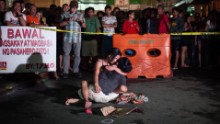 Death toll rising in Philippines' war on drugs
Death toll rising in Philippines' war on drugs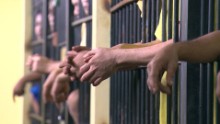 A brutal war on drugs in the Philippines
A brutal war on drugs in the Philippines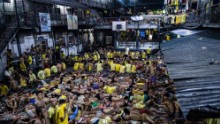 CNN goes inside massively overcrowded jail
CNN goes inside massively overcrowded jail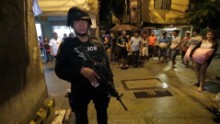 Philippines drug war sparks outrage, fear
Philippines drug war sparks outrage, fear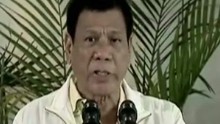 White House cancels Duterte meeting after name-calling
White House cancels Duterte meeting after name-calling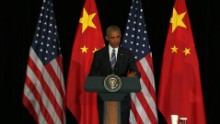 Obama on Duterte: 'Clearly he's a colorful guy'
Obama on Duterte: 'Clearly he's a colorful guy'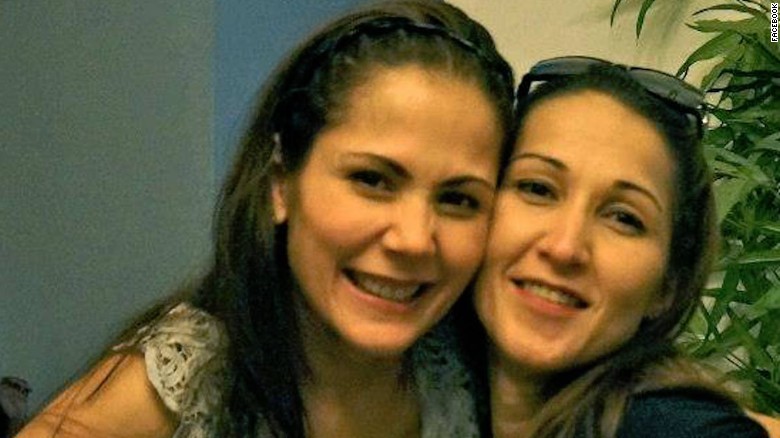 Maria Aurora Moynihan, right, and sister, actress Maritoni Fernandez. Moynihan was shot dead in Manila on September 10, 2016.
Maria Aurora Moynihan, right, and sister, actress Maritoni Fernandez. Moynihan was shot dead in Manila on September 10, 2016.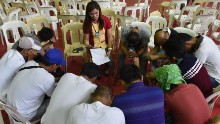
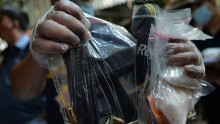
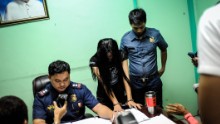
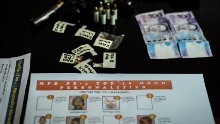
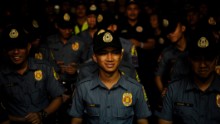
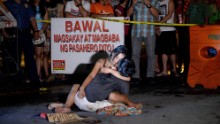
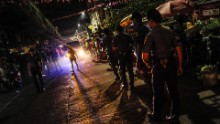
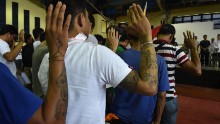
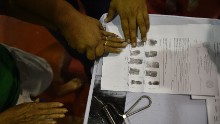
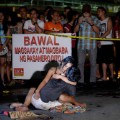
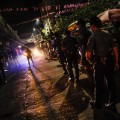
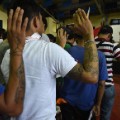
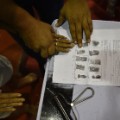
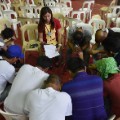
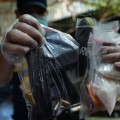
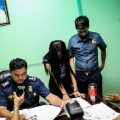
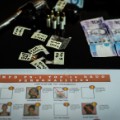
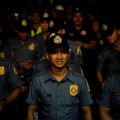 Playboy father
Playboy father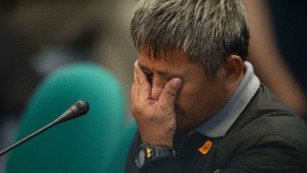

Comment